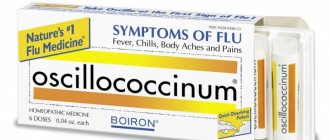Indications for use in hepatitis B
Omega-3 PUFAs are prescribed for nursing mothers, since newborns need them for:
- Correct and timely development of the brain. The plasticity of brain cell membranes improves (memory, attention, abstract thinking).
- Formation of acute vision.
- Implementation of a barrier function against viral and bacterial infections. 4 Prevention of the development of diathesis, for adequate development of the immune system.
Omega-3 PUFAs are necessary for a nursing mother to:
- preventing postpartum depression;
- reducing the risk of obesity.
Long-term, uncontrolled use of the drug can provoke and aggravate a number of diseases:
- chronic diseases of the gallbladder, kidneys, liver;
- ulcerative formations in the stomach, small intestine;
- increasing the content of vitamin D and calcium in the body;
- pathological manifestations in the functioning of the heart and blood vessels;
- diseases of the thyroid gland.
A mother or child may have an individual intolerance to fish oil.
It is important to remember that uncontrolled and prolonged use of drugs containing Omega-3 can negatively affect the health of a woman and her baby. Therefore, it is necessary to follow the instructions and not exceed the recommended dose.
Taking Omega-3 may worsen the course of the following diseases:
- intestinal or stomach ulcer;
- chronic pathologies of the kidneys, gall bladder, liver;
- hypervitaminosis;
- hypercalcemia;
- thyroid disease.
With long-term use of drugs with polyunsaturated fatty acids, the fat content of milk can increase and stagnation in the mammary glands may occur. Therefore, while taking medications containing Omega-3, it is worth reducing the amount of fatty foods in the diet.
It is also likely that your baby will develop problems with the digestive tract: colic, upset stool. Allergic reactions in the form of an itchy red rash on the body are possible.
Among the side effects, women sometimes experience:
- decreased blood clotting;
- bad odor from the mouth;
- diarrhea.
You should stop taking Omega-3 in the following cases:
- individual intolerance to this substance by the body of a woman or her child;
- ulcerative pathologies;
- cholelithiasis and urolithiasis;
- endocrine disorders;
- organic myocardial diseases;
- hypothyroidism;
- disorders of the liver (fatty hepatosis, hepatitis);
- active form of tuberculosis;
- chronic renal failure.
To prevent the development of adverse reactions while taking Omega-3 drugs, doctors advise the following:
- start taking the medicine with the minimum dosage. This will make it clear how the child’s body reacts to the introduction of polyunsaturated fatty acids. If no negative symptoms appear during the first day, the dose of the drug can be increased;
- take suitable means;
- follow the rules for using the medicine specified in the annotation;
- do not take the drug for too long and in large doses;
- if adverse reactions occur, immediately discontinue Omega-3;
- stop taking medications containing polyunsaturated fatty acids in the first three months after birth. Newborns are weak and sensitive. Their digestive and immune systems are not formed. At this time, the baby’s fragile body may react to Omega-3 with allergies and gastrointestinal disorders.
Despite the undeniable benefits of this dietary supplement for breastfeeding, its use should be treated with caution and all existing contraindications should be taken into account:
- sensitivity to components of fish oil and individual intolerance;
- pathologies in the gastrointestinal tract;
- kidney diseases;
- liver problems, including hepatitis and fatty liver disease (fatty liver);
- cholelithiasis;
- diseases of the heart and blood vessels;
- hypothyroidism and hyperthyroidism.
If you have a history of food allergies to seafood, don't rush into taking fish oil. It is better to consult an allergist.
- individual intolerance;
- pathologies of the gastrointestinal tract;
- kidney disease, renal failure;
- liver diseases;
- thyroid dysfunction;
- urolithiasis disease;
- organic heart lesions, etc.
For mothers of breastfed infants, the drug should be prescribed by the attending physician. The dietary supplement should be taken according to the schedule prescribed by a specialist.
Despite the significant benefits of using the beneficial substance, there are a number of contraindications:
- individual intolerance;
- gastrointestinal diseases, development of pathologies;
- kidney disease, failure;
- liver problems;
- thyroid dysfunction;
- stones in the urinary tract;
- organic heart diseases.
Therefore, taking fish oil or supplements containing it should be recommended by a doctor, and healthy capsules should be taken in strict accordance with the recommended dosage.
Adverse reactions often occur when taken incorrectly and when the permissible dosage is exceeded. The most common side effects are allergies, heartburn, belching, stomach pain, stool upset, and decreased blood clotting. When used by a nursing mother, it may increase the load on the baby's digestive system.
Omega-3 supplements should not be used if you have the following diseases or conditions:
- hypervitaminosis A, D, E;
- chronic form of pancreatitis and urolithiasis;
- kidney and liver diseases during exacerbation;
- hypersensitivity to components of fish oil;
- active form of tuberculosis;
- hemorrhagic syndrome.
Compliance with the rules for choosing and taking supplements with polyunsaturated acids during breastfeeding allows you to enrich the body with useful substances and improve functioning without negative reactions.
Read more: Vitamin C, ascorbic acid: instructions for use
source
Is it possible to drink fish oil during lactation?
Everyone knows about the beneficial properties of fish oil: it is given to exhausted and immunocompromised people, and to sick children. This unique product is rich in vitamins, minerals, and polyunsaturated fatty acids. Many consider it a panacea for all conditions. Is it possible to take fish oil while breastfeeding (gf)? Will it harm the baby’s not fully mature digestive system? After all, doctors recommend limiting fatty and fried foods, even certain types of fish, during lactation.
After all, doctors recommend limiting fatty and fried foods, even certain types of fish, during lactation.
Contraindications and side effects
Despite the benefits, fish oil can also be harmful to the body. An absolute contraindication is:
- cholelithiasis;
- urethra;
- pancreatitis;
- liver and kidney diseases;
- hypervitaminosis A and D;
- tuberculosis;
- acute course of inflammation;
- hypothyroidism or hyperthyroidism;
- thyrotoxicosis;
- hypercalciuria;
- long-term immobilization.
You should be careful when taking it during breastfeeding in the following cases:
- if a woman has previously experienced hypersensitivity to the components of fish oil or individual intolerance;
- there are pathologies in the gastrointestinal tract;
- with peptic ulcer;
- have heart or vascular diseases;
- hypothyroidism or hyperthyroidism.
This food supplement does not always have a positive effect on the body’s condition. Side effects may include:
- indigestion – abdominal pain, heartburn, diarrhea and diarrhea often occur;
- vitamin poisoning – vitamins A and D are harmful to the body in large quantities, so you should not increase your daily dose of fish oil unnecessarily;
- nosebleeds or blood in the urine - occurs in rare cases when taking large doses;
- Heavy metal poisoning - occurs when consuming fish oil of poor quality that has not been purified.
Among the unpleasant effects that are not side effects, women who take fish oil note a fishy aftertaste and belching.
Indigestion often occurs: abdominal pain, heartburn, diarrhea and diarrhea;
What products does it contain?
It is not necessary to take medications to enrich the body with polyunsaturated fatty acids. Omega-3 is found in some foods. Most of this substance is found in fish and seafood.
It is useful to eat red and black caviar, herring, tuna, mackerel, salmon, trout, salmon, halibut, and cod. It is recommended to stew or boil the fish. It is important to remember that seafood is prohibited in the first months after childbirth due to the high risk of developing an allergic reaction.
Omega-3 is also found in the following foods:
- flaxseed, sesame, olive, rapeseed oils;
- canned cod liver;
- dried soybeans;
- Brussels sprouts;
- chickpeas;
- oat seedlings;
- walnuts;
- lentils;
- Brown rice;
- wheat germ;
- dry beans;
- pistachios;
- chicken eggs;
- pecans;
- spinach;
- almond;
- avocado oil;
- pumpkin seeds.
Allergic reactions in the form of an itchy red rash on the body are possible.
Side effects
Fish oil has some contraindications for which it is not recommended to drink it:
- presence of chronic liver diseases;
- problems with kidney function;
- stomach or intestinal ulcer;
- inflammation of the pancreas;
- disruption of the gallbladder;
- excess vitamin D;
- calcium overdose;
- endocrine diseases;
- allergic reactions;
- diseases of the cardiovascular system.
If there are contraindications, taking omega-3 is not recommended. Omega-3 vitamins during breastfeeding can change the taste of milk and there is a chance that the baby will not like it. In this case, you can try to reduce the dose and give time for the baby to get used to the new sensations.
source
Harmful properties
Although fish oil is beneficial for many areas of the human body, we should not forget that it has a number of contraindications. The use of fish oil is not recommended in the following cases:
- hypervitaminosis D and hypercalcemia (increased levels of vitamin D and calcium in the body);
- the presence of stones in the biliary and genitourinary systems;
- chronic liver diseases;
- ulcerations in the stomach and small intestine;
- before surgical operations and in the postoperative period in the presence of unhealed wounds;
- allergy to fish oil.
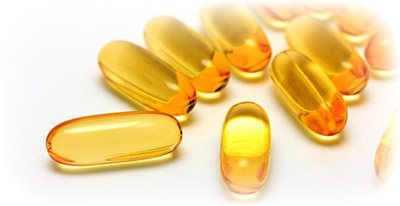
The dietary supplement, accordingly, is contraindicated in breastfeeding women suffering from an excess of calcium and calciferol. Also, during lactation it is not recommended to use fish oil if you have chronic liver diseases or diseases that require surgical intervention. Fish oil should absolutely not be used during breastfeeding if there is an individual tolerance to it.
Recommendations for mothers on how to take it correctly
Fish oil, as a source of Omega-3, is recommended to be consumed in capsule form. This will avoid affecting the taste and smell of the milk. First dose – 1 capsule. Then a break. It is necessary to observe the child to see if any allergy symptoms appear. Do not make any additional changes to your diet at this time.
If the reaction is satisfactory, you can continue to use Omega-3 (fish oil) 2-3 capsules per day. Your doctor will tell you the exact dosage.
Preparations with Omega-3 polyunsaturated fatty acids:
- Omega-3 Doppelhertz;
- Unique Omega-3;
- Solgar Omega-3 and others.
When choosing a drug, you need to pay attention to the composition.
Replenishing Omega-3 in the diet is equally beneficial for mother and child. In order for motherhood to bring only joy, you need to balance your diet, enrich it with useful nutrients, vitamins and, of course, Omega-3 fatty acids.
source
Choosing the right supplement and following the recommendations for taking fish oil while breastfeeding significantly reduces the occurrence of adverse reactions in mother and child.
When choosing, you need to pay special attention to quality. A salmon or cod capsule supplement that has undergone “molecular differentiation” or “distillation” is preferable.
- EPA and DHA content 15-60% of the daily value;
- the concentration of nutrients is from 600 to 1000 mg, with fewer acids you need to drink more capsules (from 2 to 15);
- manufacturer - it is better to choose a trusted company.
During breastfeeding, after consultation with a specialist, it is possible to use the following supplements: Omega-3 Trimester, Doppelhertz Active Omega-3, Solgar double Omega-3, Nature's Bounty Omega-3 and fish oil.
Taking any medications during breastfeeding must be agreed with your doctor. If the baby is bothered by colic, then it is advisable to postpone the use of fish oil until the child is 3-4 months old until the digestive system matures.
On the first day of taking the supplement, you should take the minimum dosage and monitor the baby’s condition for 2-3 days. It is not recommended to introduce new products at this time.
The duration of the course depends on the chosen form, on average it is 1-2 months. Breaks are necessary to prevent hypervitaminosis. The maximum dosage per day for a nursing woman is up to 1000 mg or 1 teaspoon. The use of capsules is preferable - they are odorless and unpleasant taste, and more convenient.
source
Instructions for taking Omega-3 during breastfeeding
Adequate nutrition and intake of all healthy vitamins is extremely important for restoring the physical and emotional state of a woman after childbirth, as well as for the health of the baby. It is difficult for a new mother to get important nutrients from food, because during breastfeeding there are significant restrictions in the diet.
Therefore, many doctors recommend taking fish oil while breastfeeding in the form of supplements, not food. Such supplements contain essential fatty acids and essential fat-soluble vitamins necessary to maintain the mother’s body and the normal development of the baby. In order not to harm her child, a woman should know the dosage and rules for taking supplements.
Beneficial features
Fish oil has long been available in capsule form because in its natural form it has a foul odor. Because of this, it is considered practically inedible. And in the form of capsules, the process of taking such nutrients for the body is greatly simplified.
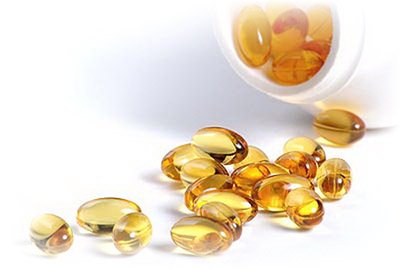
First of all, among the beneficial properties of fish oil, it is worth noting its anti-carcinogenic effect, characterized by a significant reduction in the risk of cancer. And in addition, the use of dietary supplements ensures normalization, or even prevention of weight loss in such serious diseases. This product has a positive effect on cardiovascular diseases, reducing the risk of their occurrence. It also acts prophylactically against arrhythmia and other cardiac pathologies. It is known that daily use of dietary supplements normalizes blood pressure levels in hypertension. Another beneficial property of fish oil is its positive effect on the skin, with a particularly significant effect on psoriasis.
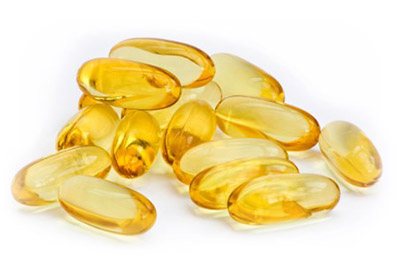
We open up the question: Is it safe to dye and restore hair while breastfeeding?
Fish oil in the postpartum period
After childbirth, women face a significant deficiency of vitamins, microelements and other substances beneficial to the body, since some of the nutrients are used to form breast milk. During breastfeeding, mothers are not advised to indulge in eating fatty fish, since it often contains mercury and other heavy metals, which are extremely dangerous for babies. Gynecologists and pediatricians agree that a nursing mother can drink fish oil, provided that the dosages and all doctor’s recommendations are followed.
Whether or not it is possible to take Omega-3 during breastfeeding depends on the chosen drug, supplement, and the characteristics of the mother’s body. There are dietary supplements approved during lactation. They are available in gelatin capsules and contain 600-1000 mg of active substances.
Before purchasing, you must read the instructions for use, excluding contraindications. For safe use, it is important to choose the right time to administer the dietary supplement.
Composition and biological role
The wide range of beneficial effects of the nutrient for the body is due to its rich chemical composition. The natural substance contains fat-soluble vitamins A, D, E, a complex of unsaturated fatty acids omega three and omega 6, antioxidants and microelements.
Vitamin complex
Vitamin A (retinol) helps cope with hair loss and brittle nails, eliminates dryness and flaking of the skin in the mother. The substance penetrates into breast milk and ensures the proper development of the baby’s visual organs. Vitamin D (cholecalciferol) is necessary for regulating the metabolism of phosphorus and calcium in the body, preventing the destruction of tooth enamel in women. D3 is very important for the baby - it ensures the normal formation of skeletal bones and provides individual prevention of rickets.
PUFAs have a complex positive effect on a woman’s body: improves the rheological properties of the blood and lipid profile, normalizes blood pressure, and has anti-inflammatory and antioxidant effects. Omega 3 acids are essential for breastfeeding, they increase milk production and improve its nutritional value. DHA and EPA in fish oil are essential substances for the formation of the child’s brain and sensory organs.
Read more: Immunity in winter strengthening vitamins drugs remedies
For weight loss
After childbirth, mothers often face the problem of excess fat deposits and metabolic disorders. Omega three acids help normalize the metabolism of carbohydrates and fats, increase the sensitivity of cells to insulin and the absorption of glucose by the body. The substance accelerates metabolism and promotes weight loss. Polyunsaturated fatty acids are also responsible for the production of biologically active compounds that regulate the feeling of hunger and satiety.
A sufficient amount of DHA, contained in fish oil, is necessary for the normal functioning of mental processes. Supplements can help prevent the development of postpartum depression. The effect of acids on the emotional state is realized through an increase in the formation of active neurotransmitters (especially serotonin).
Vitamin complex
How to take omega-3 correctly?
Before ingesting any vitamins, consultation with a specialist is required. Despite the benefits of omega-3 PUFAs during breastfeeding, you can drink only on the recommendation of a pediatrician. He will appreciate the need for additional supplements.
The dose of omega-3 is 2-3 grams per day for men and 1-2 grams for women. It is optimal to take vitamins with meals, preferably in the first half of the day.
A larger amount can lead to memory impairment, absent-mindedness, decreased activity, irritability, allergic reactions, and decreased visual acuity.
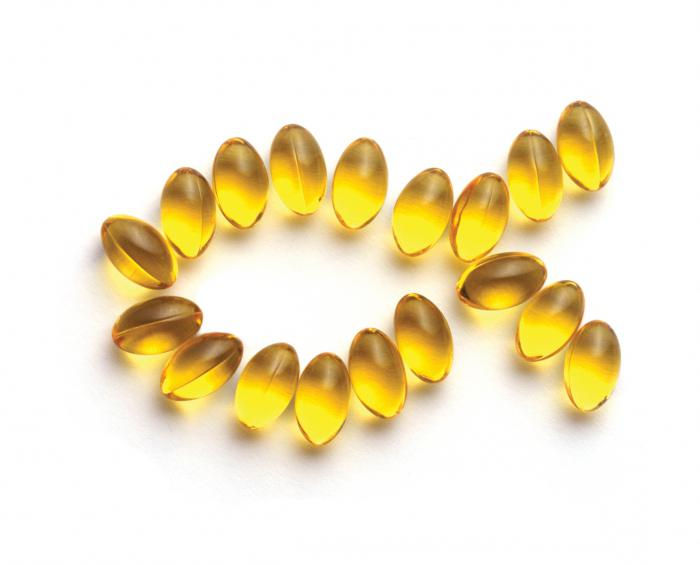
Taking fish oil supplements is contraindicated in the following situations:
- the mother is allergic to the components of the composition;
- peptic ulcer of the stomach and duodenum;
- increased levels of calcium in the blood;
- pathologies of the urinary system and kidneys;
- hyperfunction of the thyroid gland;
- cholelithiasis.
Doctors recommend that mothers who have just given birth take special postnatal fish oil supplements, which simultaneously nourish the mother's body, but do not interfere with the composition of breast milk. To prevent your newborn baby from developing allergies or side effects, pay attention to the instructions for the drug so that it is not prohibited for use during breastfeeding, and do not try to compensate for the deficiency of the substance with fatty fish. The fact is that in addition to useful Omega acids and vitamins, you will also receive all the harmful components that are not found in pure supplements.
During this period, the digestive system of infants is not sufficiently developed, some enzymes are missing in the intestines, so the ingestion of nutrients from breast milk into the child’s body can cause dyspeptic disorders (diarrhea, colic, bloating). There is also a risk of developing allergic reactions to the components of fish oil, since in the first months of life the immune defense mechanisms of the newborn are significantly reduced.
source
Will fish oil in a mother’s diet harm breastfeeding (BF)? How will this dietary supplement affect lactation? What beneficial properties are most important for a nursing mother and her baby, and what are the contraindications?
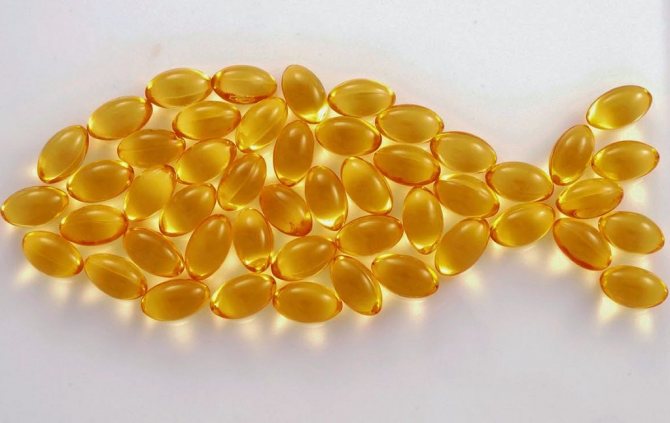
If you decide to take fish oil and at the same time breastfeed your baby, you should consult your doctor. During lactation, it is better to choose a nutritional supplement in the form of capsules. It is believed that this does not affect the smell and taste of breast milk.
You should start taking it with one capsule, after which a break is necessary, during which the mother can observe the condition of the baby and his reaction to the drug.
https://www.youtube.com/watch?v=RysiDTV0rOE
During this period, the woman needs to refrain from eating new foods that are not yet familiar to the baby, so that in the event of an allergy there is no doubt about the causes.
If there is no reaction, after 2-3 days you can take fish oil daily in the dosage prescribed by your doctor.
The average daily dose is 1 tsp, or 1-3 capsules.
In order to prevent colic in the baby due to changes in the composition of milk, the mother needs to monitor the amount of fat in her diet and avoid fatty foods. Compliance with this recommendation will also significantly reduce the risk of lactostasis, which is often caused by mother’s milk being too fatty.
Russian doctors advise taking the drug in the autumn-winter period according to the following scheme: 1 month on - 1 month off.
source
Nutrition for a nursing mother: can fish oil be added?
After the birth of a child, a woman needs to be especially careful about her diet. The body of a nursing mother is weakened after pregnancy and childbirth, a lot of strength and nervous energy goes into caring for the baby, in addition to this, lactation requires serious resources.
Nutrition should be healthy for both mother and baby - the baby receives nutrients from mother's milk. If a mother's diet while breastfeeding does not include a full range of foods rich in nutrients, you should consider taking vitamins and nutritional supplements.
Not all vitamin complexes and supplements are suitable for use while breastfeeding. In order not to harm the baby and your own health, it is important to seek advice from your doctor. Popular dietary supplements include fish oil. Many nursing mothers ask the question, is it possible to take it during lactation?
Fish oil is a dietary supplement of animal origin, the product is produced by processing cod liver or rendered from various types of fish. Purified fish oil is characterized by an oily consistency, light yellow color and a specific odor. In pharmacology, it is used in liquid form or in the form of capsules with a soluble gelatin shell.
This type of fat is rich in vitamins A and D, but its main value lies in its high content of fatty acids. It is fish oil that acts as the main source of omega-3 - polyunsaturated fatty acids necessary for the normal functioning of the body.
Humanity has long been convinced of the benefits of fish oil - it is a traditional means of treating and preventing rickets in children; its regular use helps eliminate the deficiency of vitamin A and D in the body.
Modern research has proven that this product should be included in the diet of every person. It is recommended to regularly include high-fat fish dishes in your diet or take the drug in capsules.
Fish oil is an effective remedy in the fight against various ailments. Its use is often prescribed during the development of:
- osteoporosis;
- tuberculosis;
- rickets;
- obesity;
- diabetes;
- anemia;
- instability of blood pressure, etc.
Vitamins
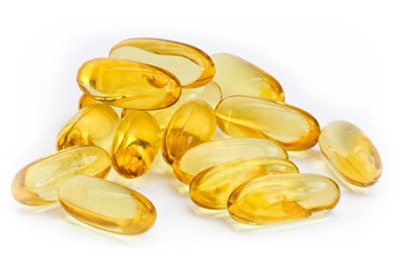
Vitamin A contained in fish oil strengthens vision, improves the condition of skin, hair, and nails. Vitamin D helps reduce nervous excitability, strengthen bone tissue, and improve the penetration of phosphorus into cells. These vitamins are especially necessary for women during breastfeeding.
Omega-3
This group of polyunsaturated fatty acids helps reduce the risk of developing diseases of the cardiovascular system, reduces the content of bad cholesterol in the blood, preventing atherosclerosis, helps normalize blood circulation, and reduces thrombus formation. Omega-3, when consumed regularly, has a beneficial effect on the nutrition of tissues throughout the body, prevents or slows down the development of inflammatory processes.
We suggest you read tea with lemon: is it possible for a nursing mother or will it harm the baby?
Omega-3 fatty acids are required by the body for the formation of cell membranes, nerve fiber sheaths, and the formation of connective tissue. Due to its high omega-3 content, fat is used to reduce the risk of developing insulin resistance and diabetes.
Consumption of fish oil makes lipid metabolism more intense and allows you to actively burn harmful saturated fats. In combination with regular physical activity, this makes it possible to reduce body fat mass.
Taking fish oil can increase the production of serotonin in the body. “The good mood hormone” is the best remedy in the fight against depression and stress to which the female body is exposed during the postpartum period. Suppression of stress hormones protects the cardiovascular system from arterial spasms.
Contraindications
Even with the obvious benefits of fish oil, the drug should be taken with caution. The list of contraindications includes:
- individual intolerance;
- pathologies of the gastrointestinal tract;
- kidney disease, renal failure;
- liver diseases;
- thyroid dysfunction;
- urolithiasis disease;
- organic heart lesions, etc.
For mothers of breastfed infants, the drug should be prescribed by the attending physician. The dietary supplement should be taken according to the schedule prescribed by a specialist.
Administration during lactation
For nursing mothers, constant intake of fish oil is excluded. Long-term use of this dietary supplement significantly increases the fat content of milk, which the child’s digestive system is not ready for. In addition, excessively fatty milk is separated more poorly, which increases the risk of lacostasis.
When breastfeeding, you can take a course of the drug, and a single dose should not exceed one teaspoon per day (or the corresponding volume of fat in capsules). During the course, it is necessary to reduce the amount of fatty foods in the diet. It is important to monitor the child’s health – he may have an allergic reaction or digestive upset.
It is most convenient to take fish oil in capsules - when storing a liquid product, oxidation occurs over time with loss of beneficial properties. In addition, the purified encapsulated product has virtually no effect on the taste and smell of breast milk.
data-matched-content-rows-num=”9, 3″ data-matched-content-columns-num=”1, 2″ data-matched-content-ui-type=”image_stacked”
Best Supplements for Breastfeeding Moms
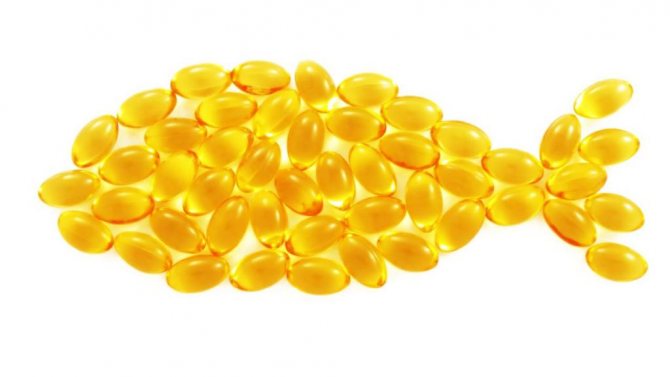
We have selected the TOP 3 dietary supplements with fish oil and polyunsaturated fatty acids from premium pharmaceutical companies. These preparations are distinguished by high quality raw materials, rich chemical composition and the absence of allergens. All of them have passed international quality certification and can be safely used during lactation.
source
source
For the health of mother and child: how to properly take Omega-3 while breastfeeding?
After childbirth, it is important for a woman to eat a healthy and balanced diet in order to recover faster, ensure good health for herself and the normal development of her child.
Many pediatricians advise taking Omega-3 during lactation. This substance is beneficial for mother and newborn.
But you need to know the daily intake of Omega-3 during breastfeeding and the rules for taking the drug so as not to harm yourself and the baby.
To improve the condition of skin, hair and nails, and to compensate for the deficiency of important vitamins and elements, multivitamin complexes can be used. However, after childbirth and while feeding the baby, many of them are prohibited. An alternative is to take fish oil for breastfeeding. Before use, it is important to familiarize yourself with the composition, recommended dosages and course, options for use, and safe drugs.
The supplement has a beneficial effect on the baby's health. The elements contained are involved in the formation and development of the child’s brain, nervous system, vision, replenish the deficiency of nutrients, and strengthen the immune system.
They prevent the development of heart and vascular diseases, diabetes, allergies, and metabolic disorders. When a nursing mother takes the supplement in the first months of a child’s life, the risk of nervous system defects in the baby is reduced.
Read more: What vitamins are in birch sap
Benefits for mother and baby
Omega-3 is a group of polyunsaturated fatty acids that are necessary for the body to form nerve fiber sheaths, cell membranes, and connective tissue. These substances are beneficial for mother and child. A person needs about 1-1.5 grams of Omega-3 per day.
Polyunsaturated fatty acids are used especially actively during lactation. Half of the daily value is transferred through breast milk to the baby. Therefore, a woman needs to increase her Omega-3 intake.
There are three types of polyunsaturated fatty acids:
- eicosapentaenoic acid;
- alpha-linoleic;
- docosahexaenoic.
A mother and her baby require the latter variety.
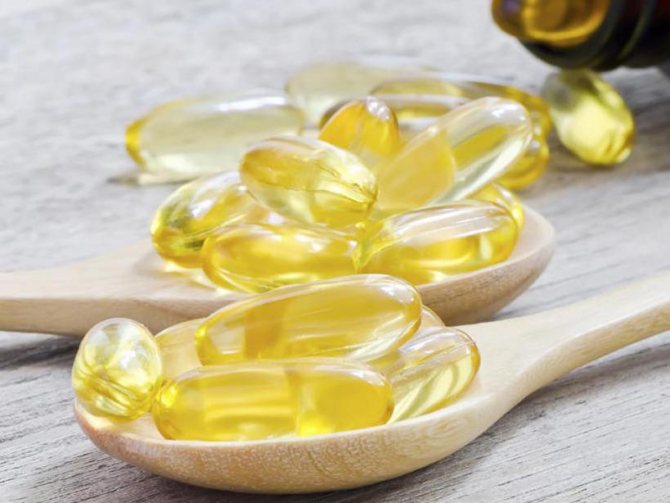
Benefits of Omega-3 for a woman’s body:
- improves the condition of arterioles and myocardium;
- reduces the likelihood of developing diabetes;
- reduces the risk of thrombosis;
- reduces bad cholesterol levels;
- stimulates brain function;
- improves the condition of joint tissue;
- promotes normalization of metabolic processes and weight loss;
- prevents postpartum depression, improves psycho-emotional state.
For a baby, the benefits of Omega-3 are as follows:
- promotes the formation of visual perception;
- ensures correct and timely development of the brain;
- improves abstract thinking, memory, increases concentration;
- prevents the development of infectious viral diseases, creating a barrier to the penetration of pathogenic microorganisms;
- strengthens the immune system;
- prevents the development of diathesis.
Signs of Omega-3 deficiency include the following:
- increased fragility of hair and nails;
- constant thirst;
- dryness of the epidermis;
- apathy;
- decreased concentration;
- poor wound healing;
- frequent constipation;
- increased blood pressure;
- pain in muscles, joints, tendons;
- a sharp decrease in immunity;
- deterioration in the quality of vision;
- decreased performance, fatigue;
- dandruff;
- the appearance of a rash on the skin.
Fish oil is a dietary supplement made from the liver of cod fish. Many adults perceive it as something tasteless and smelling bad. Fortunately, advanced pharmaceuticals offer us not only to drink liquid fish oil, familiar from childhood, but also to take its purified analogue in capsules.
The exclusivity of the product lies in the content of a large amount of vitamins (A, E, D, etc.) and fatty acids, without which the human body cannot fully function.
Vitamin A is essential for good vision. Together with vitamin E, it is responsible for the condition of nails, skin and hair (many mothers who breastfeed their children note a deterioration in their condition).
Vitamin D helps in the absorption of calcium and phosphorus, which are necessary to strengthen the teeth and bones of a nursing mother. If there is a deficiency of this vitamin in the body, rickets develops. The disease is also dangerous for a baby because only a doctor can notice it. The vitamin is especially important for “winter” children, since in the first months of their life they usually experience a lack of sunlight.
Separately, it should be said about the importance of fatty acids, which:
- stimulate fat metabolism and have a beneficial effect on digestive processes;
- have a positive effect on the development of the children's nervous system;
- promote the production of the hormone of joy - serotonin, and therefore serve as a prevention of depression in nursing women;
- eliminate inflammatory processes;
- form immunity in the baby and strengthen the protective forces of the mother’s body;
- reduce cholesterol levels and prevent the occurrence of heart and vascular diseases;
- help wound healing;
- necessary for the formation of nerve fibers, cell membranes and connective tissue;
- prevent the onset of diabetes.
Regular intake of fish oil by a woman during breastfeeding promotes lipid metabolism, which, in turn, helps to get rid of extra pounds that “settled” in the body during pregnancy.
The nutrition of a nursing mother affects the health of the baby. The mother should receive all the vitamins and minerals to pass on to the baby through milk, but at the same time adhere to the diet. Omega-3 is an important component necessary for the development of the baby, but is a mother allowed to drink omega-3 while breastfeeding?
Fish oil during breastfeeding: is it possible for a nursing mother, the benefits of omega 3 during lactation
Fish oil is a dietary supplement made from the liver of cod fish.
Many adults perceive it as something tasteless and smelling bad. Fortunately, advanced pharmaceuticals offer us not only to drink liquid fish oil, familiar from childhood, but also to take its purified analogue in capsules. The exclusivity of the product lies in the content of a large amount of vitamins (A, E, D, etc.) and fatty acids, without which the human body cannot fully function.
Vitamin A is essential for good vision. Together with vitamin E, it is responsible for the condition of nails, skin and hair (many mothers who breastfeed their children note a deterioration in their condition).
Vitamin D helps in the absorption of calcium and phosphorus, which are necessary to strengthen the teeth and bones of a nursing mother. If there is a deficiency of this vitamin in the body, rickets develops. The disease is also dangerous for a baby because only a doctor can notice it. The vitamin is especially important for “winter” children, since in the first months of their life they usually experience a lack of sunlight.
Separately, it should be said about the importance of fatty acids, which:
- stimulate fat metabolism and have a beneficial effect on digestive processes;
- have a positive effect on the development of the children's nervous system;
- promote the production of the hormone of joy - serotonin, and therefore serve as a prevention of depression in nursing women;
- eliminate inflammatory processes;
- form immunity in the baby and strengthen the protective forces of the mother’s body;
- reduce cholesterol levels and prevent the occurrence of heart and vascular diseases;
- help wound healing;
- necessary for the formation of nerve fibers, cell membranes and connective tissue;
- prevent the onset of diabetes.
Regular intake of fish oil by a woman during breastfeeding promotes lipid metabolism, which, in turn, helps to get rid of extra pounds that “settled” in the body during pregnancy.
Contraindications
Despite the undeniable benefits of this dietary supplement for breastfeeding, its use should be treated with caution and all existing contraindications should be taken into account:
- sensitivity to components of fish oil and individual intolerance;
- pathologies in the gastrointestinal tract;
- kidney diseases;
- liver problems, including hepatitis and fatty liver disease (fatty liver);
- cholelithiasis;
- diseases of the heart and blood vessels;
- hypothyroidism and hyperthyroidism.
If you have a history of food allergies to seafood, don't rush into taking fish oil. It is better to consult an allergist.
How to drink correctly?

If you decide to take fish oil and at the same time breastfeed your baby, you should consult your doctor. During lactation, it is better to choose a nutritional supplement in the form of capsules. It is believed that this does not affect the smell and taste of breast milk.
- You should start taking it with one capsule, after which a break is necessary, during which the mother can observe the condition of the baby and his reaction to the drug.
- During this period, the woman needs to refrain from eating new foods that are not yet familiar to the baby, so that in the event of an allergy there is no doubt about the causes.
- If there is no reaction, after 2-3 days you can take fish oil daily in the dosage prescribed by your doctor.
The average daily dose is 1 tsp, or 1-3 capsules.
In order to prevent colic in the baby due to changes in the composition of milk, the mother needs to monitor the amount of fat in her diet and avoid fatty foods. Compliance with this recommendation will also significantly reduce the risk of lactostasis, which is often caused by mother’s milk being too fatty.
Russian doctors advise taking the drug in the autumn-winter period according to the following scheme: 1 month on - 1 month off.
Fish oil is a multifaceted product and, among other things, has a positive effect on women’s appearance. This dietary supplement contains a lot of vitamin E, which is called the “vitamin of beauty and youth.” Regular use slows down the natural aging of the skin, restores elasticity and starts regeneration processes.
The scope of application of fish oil is not limited to oral administration. Homemade masks have demonstrated high effectiveness. It is important that even those mothers whose children are allergic to the drug can use them.
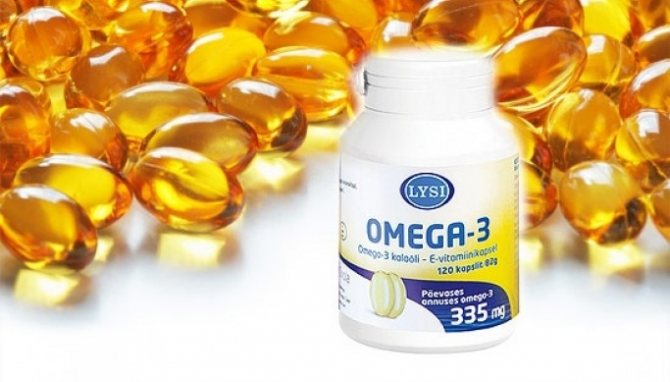
With this use, potential allergens do not penetrate into breast milk and therefore cannot harm the baby.
To prepare homemade cosmetics based on fish oil, you can use both liquid preparation and capsules.
Let's look at a few recipes.
Face masks
- Combine bee honey, liquid fish oil and water in equal quantities (1 tablespoon each). Mix everything until smooth and apply to facial skin. After 30 minutes, rinse with warm water without soap.
- 1 tbsp.
l. combine fish oil with the same amount of heavy cream and lemon juice. Mix all ingredients. Apply to face for 20 minutes. It is recommended to rinse off with warm water. - For dry and flaky skin, split 2 capsules of fish oil and mix the contents with 1 tbsp.
l. dry yeast and 2 tbsp. l. warm milk. Wait 15-20 minutes (during this time the yeast should activate). Next, add the egg yolk to the mixture and mix until smooth. Leave on the skin for 20 minutes, then rinse with warm water.
Hair Mask
- Mix egg yolk in equal proportions with fish oil, honey, burdock, olive and almond oils. The volume of the mixture will depend on how long and thick your hair is.
- Heat the components in a water bath to a temperature comfortable for the skin.
- Distribute the mixture evenly throughout your hair and leave for 30 minutes.
- Rinse thoroughly with shampoo.
This should be done at least once a week.
Nail care
To strengthen your nails, you need to mix fish oil, lemon juice, olive and sea buckthorn oils in equal proportions. Apply the resulting mixture to your nails and leave until completely dry. This nail strengthening method will show noticeable results if done once a week.
We invite you to familiarize yourself with the List of products and menus for a nursing mother when breastfeeding a newborn
When should I take it?
Fish oil during breastfeeding is simply necessary for mothers who do not receive adequate nutrition, rich not only in vitamins and minerals, but also in fatty acids, constantly lack sleep and rarely go outside. This food supplement is especially relevant in the autumn-winter period and when there is a lack of sunlight. Doctors also recommend drinking fish oil to mothers of premature and weakened babies.
Secrets of choice
When buying a drug at a pharmacy, pay attention to the additives it contains, which can negatively affect the child’s condition, cause colic or allergies. When breastfeeding, a mother needs to choose a pure product, but only after medical approval.
Reviews from young mothers
Natalya: I am the mother of two wonderful twins. My pregnancy was not easy, because the load on the body was double. After giving birth, I felt incredibly tired, constantly wanted to sleep, and depression set in. The doctor advised me to drink fish oil capsules (1 piece 2 times a day for a month).
I was very worried about how this would affect my children, since we are on breastfeeding. But they tolerated the drug perfectly. A month later, my health improved noticeably. A pleasant bonus was the wonderful condition of my hair and skin.
Victoria: After my first birth, my hair fell out a lot. I even thought that I would have to buy a wig.
But as it turns out, this is a common problem for women who are breastfeeding. Therefore, when I became pregnant with my second child, I immediately began studying this topic. My gynecologist advised me to start taking fish oil during pregnancy. I took it in courses: one month after another.
The baby was born healthy, and my luxurious hair still causes the envy of my friends.
To improve the condition of skin, hair and nails, and to compensate for the deficiency of important vitamins and elements, multivitamin complexes can be used.
However, after childbirth and while feeding the baby, many of them are prohibited. An alternative is to take fish oil for breastfeeding.
Before use, it is important to familiarize yourself with the composition, recommended dosages and course, options for use, and safe drugs.
Composition of fish oil
The additive is extracted from the muscles or liver of fish - cod, salmon, mackerel, herring. It is processed and produced by companies in liquid form or gelatin capsules. What's included:
- polyunsaturated fatty acids Omega-3 and Omega-6;
- vitamins A, D, E;
- palmitic and oleic acids;
- small amounts of minerals - magnesium, calcium, iodine and iron;
- folic acid and vitamin B.
Whether or not it is possible to take Omega-3 during breastfeeding depends on the chosen drug, supplement, and the characteristics of the mother’s body. There are dietary supplements approved during lactation. They are available in gelatin capsules and contain 600-1000 mg of active substances.
Before purchasing, you must read the instructions for use, excluding contraindications. For safe use, it is important to choose the right time to administer the dietary supplement.
During breastfeeding, the mother gives some of the vitamins and minerals she receives and receives to the baby along with breast milk. With insufficient replenishment of substances, her bones, teeth, hair, nails and the body as a whole suffer.
Benefit:
- promotes the production of the hormone serotonin, which is necessary to prevent postpartum depression;
- heals wounds, cracks;
- participates in the formation of connective tissue, cell membranes and nerve fibers;
- improves the condition of nails, skin, hair;
- regulates the exchange of calcium and phosphorus in the body of a nursing woman, which helps prevent the destruction of teeth and bones;
- strengthens the immunity of mother and child;
- has a beneficial effect on digestion and fat metabolism;
- prevents the development of diabetes, high blood pressure, diseases of the cardiovascular system, inflammation, psoriasis;
- promotes rapid recovery after childbirth.
Weight loss
Omega-3 and Omega-6 acids regulate digestive processes, improve fat metabolism and fat absorption, and stimulate insulin production.
If you follow a diet and exercise, a nursing woman can lose a little weight.
Thanks to the regulation of the production of the hormone of joy (serotonin), with a course of use of dietary supplements, it is possible to reduce anxiety, stress, and improve a woman’s condition with postpartum depression. Also, drugs with polyunsaturated acids are used to prevent these conditions.
Composition of fish oil
- What is fish oil?
- Beneficial features
- Harmful properties
- Eventually





